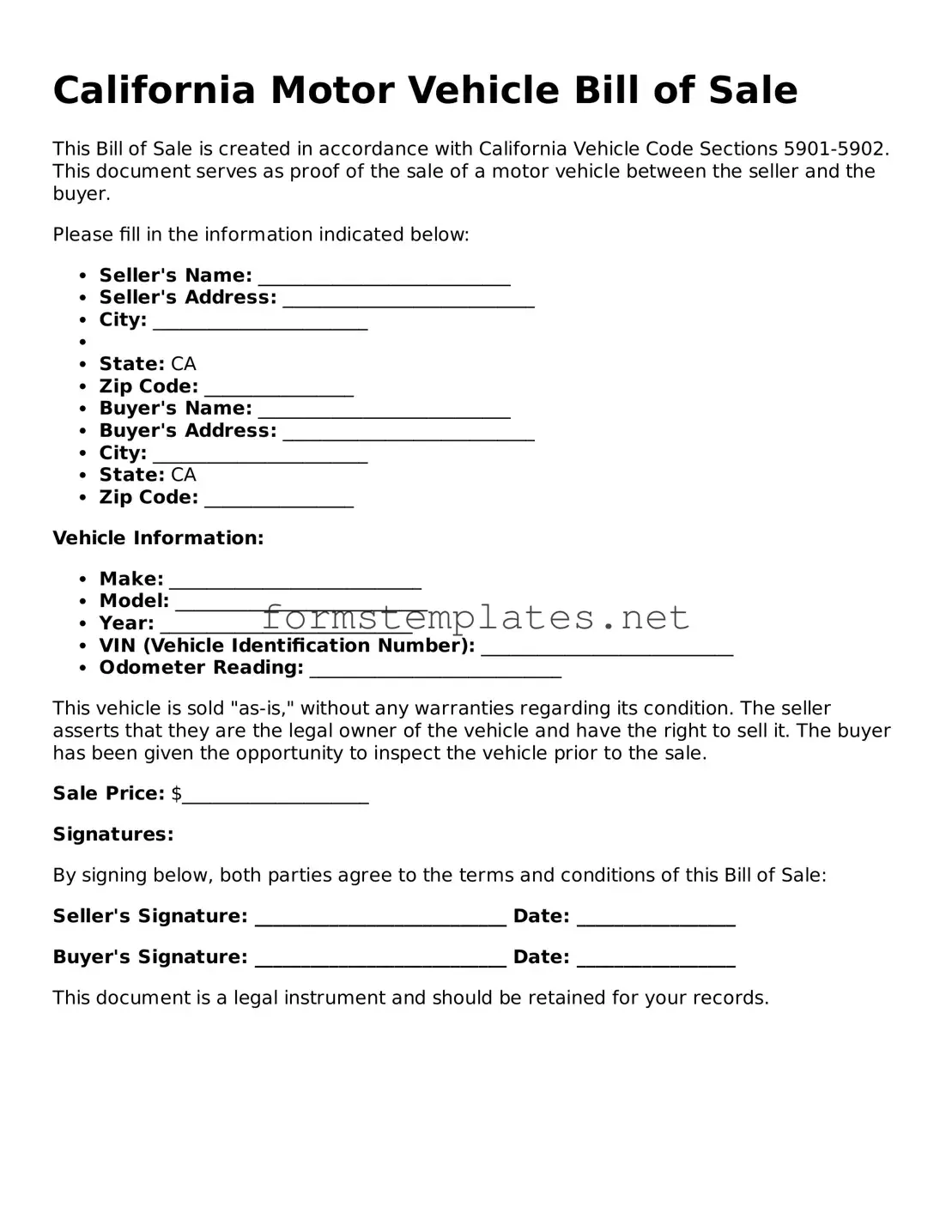Attorney-Approved California Motor Vehicle Bill of Sale Template
The California Motor Vehicle Bill of Sale form is a legal document used to transfer ownership of a vehicle from one party to another. This form serves as proof of the transaction and includes essential details about the vehicle and the parties involved. Understanding how to properly complete this form is crucial for both buyers and sellers to ensure a smooth transfer process.
Open Editor Now

Attorney-Approved California Motor Vehicle Bill of Sale Template
Open Editor Now

Open Editor Now
or
⇓ PDF Form
Your form still needs attention
Finalize Motor Vehicle Bill of Sale online — simple edits, saving, and download.